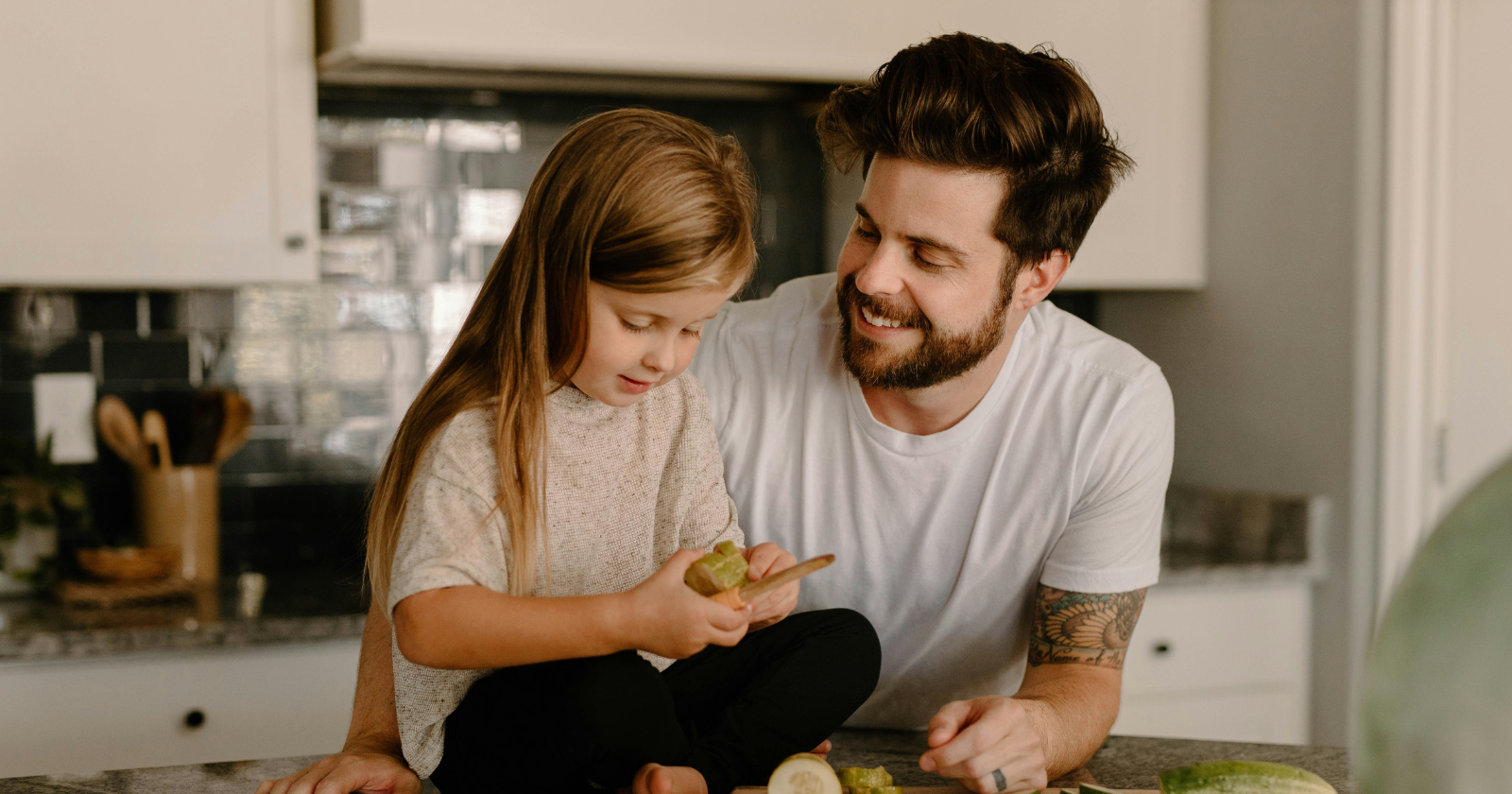Let’s face it—being a parent can feel like juggling chainsaws while riding a unicycle. From the outside, people see the milestones: first steps, first words, first day of school.
What they don’t always see are the invisible struggles that shape us, stretch us, and—almost without our realizing—make us tougher than we ever thought we could be.
These hidden challenges aren’t the kind that get posted on Instagram. They’re the quiet battles, the internal tug-of-wars, and the daily trade-offs that add up over years.
And while they can feel heavy in the moment, they’re also the very things that build our resilience.
Here are seven of those struggles—ones I’ve lived through myself—that end up becoming the roots of a parent’s quiet strength.
1) Carrying the mental load no one sees
You know that invisible to-do list running in the back of your head at all times?
The one that includes remembering the pediatrician appointment, picking up more wipes, buying a birthday present for the preschool classmate you’ve never met, and making sure there’s actually milk for tomorrow’s breakfast?
That’s the mental load.
It’s relentless. Even when you’re sitting on the couch, you’re mentally pre-packing tomorrow’s backpack. It doesn’t clock out.
And because it’s often invisible, people on the outside can underestimate just how draining it is.
But here’s the thing—navigating the mental load forces us to build systems.
Related Stories from The Artful Parent
- 8 signs you’re raising an emotionally secure child even when it doesn’t feel like you know what you’re doing
- 9 things creative kids do that look like misbehavior but are actually signs their mind is working overtime
- The 8 messiest childhood activities are actually the ones building your child’s brain in ways screens never will
We learn to delegate, to batch, to prioritize.
Over time, those skills become survival tools.
I didn’t know how capable I was of project managing a household until parenthood handed me the job title with no training manual.
2) Balancing guilt with reality
Do you ever feel like guilt is stitched into the fabric of parenting?
Whether it’s working too many hours, feeding your kid mac and cheese three nights in a row, or missing bedtime because of traffic, guilt always lurks in the background.
I used to think guilt was a sign I was failing.
- Psychology says the moment solitude stops feeling like loneliness is the moment you stop measuring your worth by how full your calendar looks. Most people don’t reach that clarity until they’ve spent years filling their time with obligations that were never really about connection - Global English Editing
- I spent my thirties and forties sleeping four hours a night and calling it discipline. Now at 55, I sleep seven hours and I finally understand that what I thought was strength was actually my nervous system refusing to stand down because it never learned how - Global English Editing
- Psychology says the reason most retirees feel emptier than they expected isn’t because retirement is overrated — it’s because they spent 40 years building an identity around productivity and nobody taught them how to value themselves without it - Global English Editing
But what I’ve come to realize is that guilt is really about caring deeply and wishing you could be everywhere at once.
The invisible struggle is learning to live with it—to recognize it without letting it control you.
As psychologist Dr. Shefali Tsabary has noted, “Parents don’t need to be perfect; they just need to be conscious.”
That shift in mindset has helped me let go of perfection and lean into presence.
When guilt whispers that I’m not doing enough, I remind myself: showing up consistently matters more than showing up perfectly.
3) Negotiating identity shifts
Before kids, your identity feels pretty clear. You’re a professional, a partner, a friend.
Then suddenly you’re also “Mom” or “Dad,” and that new role can swallow the others whole.
I remember looking in the mirror a few months after our second was born and wondering,
Who am I now? Am I still the guy who runs, who plays guitar, who travels? Or am I just the guy who knows which sippy cup lid fits which cup?
That identity shift is disorienting.
But working through it teaches resilience because it forces you to redefine yourself rather than cling to an outdated version.
And when you come out the other side, you realize you’re not less—you’re more. You’re expanded. You’ve layered new strengths onto old ones.
4) Living with constant uncertainty

Parenting is a masterclass in unpredictability.
One week your baby sleeps through the night, and the next week you’re back to 2 a.m. rocking sessions.
Just when you figure out the preschool drop-off routine, there’s a new teacher, or your kid suddenly refuses shoes.
At first, I fought the unpredictability. I tried to control everything with airtight schedules.
But eventually, I realized that the only constant in parenting is change.
That invisible struggle—learning to live with uncertainty—has made me more adaptable everywhere else in life, too.
As pediatrician Dr. Benjamin Spock once said, “Trust yourself. You know more than you think you do.” I’ve found that to be true.
The uncertainty never fully goes away, but over time, you stop panicking and start trusting your ability to adjust.
5) Managing the gap between expectations and reality
Before kids, you imagine the kind of parent you’ll be. Calm, patient, always ready with a craft project or healthy snack.
Then reality shows up: you snap when the toddler smears yogurt into the carpet, and you bribe them with Goldfish crackers just to get five minutes of peace.
That gap between expectation and reality is one of the hardest invisible struggles. And yet, wrestling with it teaches humility and flexibility.
You learn to drop the fantasy version of parenting and embrace the imperfect, messy, real one.
For me, that’s been freeing.
I’ve stopped measuring myself against an impossible standard and started measuring myself by one question: Did my kids feel loved and safe today?
If the answer is yes, then it was enough.
6) Carrying the emotional weight of two generations
Here’s something nobody told me before becoming a dad: you don’t just carry your child’s emotions, you also carry your own re-triggered childhood emotions.
When my daughter struggles with making friends, I’m suddenly back in elementary school, feeling left out at recess.
When my son cries inconsolably, it brings up every helpless moment I’ve ever felt.
That dual emotional load is exhausting.
But processing it—naming it, owning it, sometimes working through it in therapy—has made me stronger.
It’s stretched my emotional vocabulary and forced me to model emotional literacy for my kids.
And honestly, that might be one of the greatest gifts parents give their children: not the absence of struggle, but the demonstration of how to move through it without getting lost.
7) Staying connected as partners while parenting
The last invisible struggle I’ll share is this: holding onto your partnership while raising kids together.
Parenting has a way of crowding out the couple part of your relationship.
Conversations get reduced to logistics—who’s handling dinner, who’s taking the baby to the doctor, who’s on bath duty.
Camille and I have definitely had weeks where we felt more like co-workers than spouses. And that can feel lonely.
The invisible struggle is finding ways to stay connected—not just as parents, but as people who chose each other long before kids came along.
For us, that’s meant weekly check-ins (sometimes five minutes standing in the kitchen), small rituals like making coffee for each other, and laughing at the absurdity of it all.
It’s work, but it’s worth it. And in the process, it’s made our partnership stronger and more resilient, too.
Closing thoughts
When people call parents “resilient,” it’s not because we’ve cracked some secret code.
It’s because we’ve carried the invisible struggles—day after day, year after year—and come out the other side a little tougher, a little softer, and a lot more human.
These struggles don’t make parenting easy, but they do make us capable.
They stretch us beyond what we thought possible and remind us that resilience isn’t about being unshakable—it’s about learning to bend without breaking.
So the next time you feel weighed down by the invisible parts of parenting, take a breath and remember: these struggles aren’t signs you’re failing.
They’re proof you’re growing.
And one day, you’ll look back and see that the very things that felt heavy were the ones that made you strong enough to carry it all.



